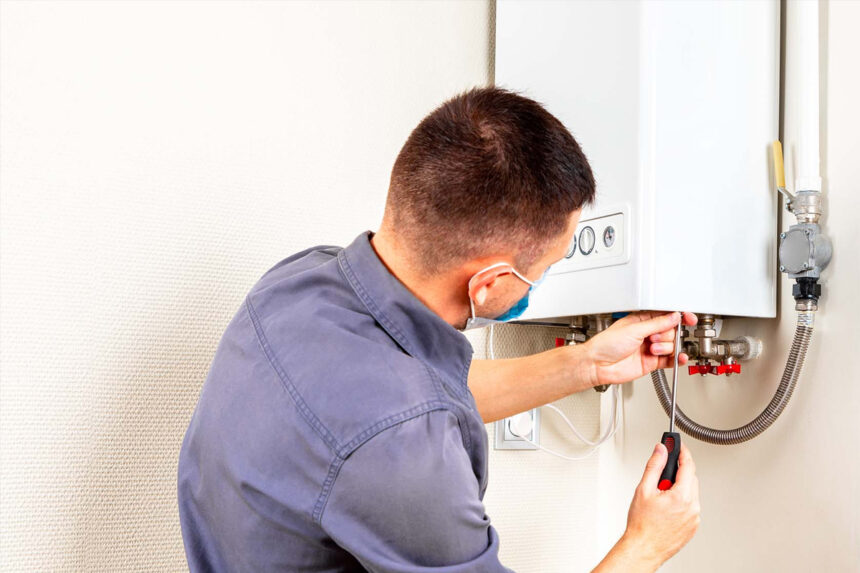Introduction
Boilers are essential components of modern homes, providing heat and hot water efficiently. A well-maintained boiler ensures comfort, safety, and cost-effectiveness. This article provides a comprehensive guide to Fife boiler installation, supply, and repairs, covering everything from choosing the right boiler to maintaining its performance over time.
Understanding Boiler Types
The first step in ensuring efficient heating is understanding the different types of boilers available. The main types include:
- Combi Boilers: These are space-saving units that provide both heating and hot water without the need for a separate water tank.
- System Boilers: Suitable for homes with more than one bathroom, these boilers store hot water in a cylinder, providing a constant supply.
- Conventional Boilers: These are traditional boilers requiring both a hot water cylinder and a cold water storage tank.
Each type has its advantages, and the choice depends on the specific needs of the household.
Selecting the Right Boiler
When selecting a boiler, consider the following factors:
- Energy Efficiency: Look for boilers with high energy ratings to reduce energy bills and environmental impact.
- Size and Capacity: Ensure the boiler can handle the heating demands of your home without being over or underpowered.
- Brand and Warranty: Choose reputable brands that offer reliable performance and good warranty terms.
- Fuel Type: Decide between gas, oil, or electric boilers based on availability and cost-effectiveness in your area.
Professional Boiler Installation
Professional installation is crucial for the optimal performance and safety of your boiler. Here are key points to consider:
- Certified Installers: Always hire certified and experienced installers to ensure compliance with local regulations and safety standards.
- Location: The boiler should be installed in a well-ventilated area to prevent the buildup of dangerous gases.
- System Integration: Ensure the boiler is compatible with your existing heating system and controls for seamless operation.
Boiler Maintenance Tips
Regular maintenance extends the lifespan of your boiler and keeps it running efficiently. Here are essential maintenance tips:
- Annual Servicing: Schedule an annual service with a qualified technician to check for any issues and perform necessary adjustments.
- Bleeding Radiators: Regularly bleed radiators to remove trapped air and ensure even heating.
- Checking Pressure: Maintain the recommended pressure levels to prevent system inefficiencies.
- Inspecting for Leaks: Periodically inspect the boiler and surrounding areas for any signs of leaks, which could indicate underlying problems.
Common Boiler Repairs
Despite regular maintenance, boilers can develop issues that require professional repairs. Some common problems include:
- No Heat or Hot Water: This could be due to various issues, including broken diaphragms, airlocks, or motorized valve failure.
- Leaking and Dripping: Often caused by pressure issues or broken components.
- Strange Noises: Banging, whistling, or gurgling noises may indicate air in the system, low water pressure, or a malfunctioning pump.
- Pilot Light Issues: A faulty thermocouple or draughts can cause the pilot light to go out frequently.
Choosing a Reliable Boiler Service Provider
When your boiler requires repair, choosing a reliable service provider is crucial. Look for companies with:
- Certifications and Accreditations: Ensure the company employs certified technicians.
- Customer Reviews: Read reviews and testimonials to gauge the quality of service.
- Response Time: Opt for providers who offer prompt and efficient service, especially in emergencies.
- Transparent Pricing: Choose a provider with clear and upfront pricing to avoid unexpected costs.
Energy Efficiency and Cost Savings
Modern boilers are designed to be energy-efficient, but you can further optimize your system for cost savings:
- Smart Thermostats: Install smart thermostats to control heating remotely and adjust settings based on usage patterns.
- Insulation: Proper insulation of your home reduces the workload on your boiler, leading to lower energy consumption.
- Regular Upgrades: Consider upgrading old boilers to newer, more efficient models to save on energy bills over time.
Future Trends in Boiler Technology
The heating industry is continually evolving, with new technologies emerging to improve efficiency and environmental sustainability. Innovations such as hydrogen boilers, which use hydrogen gas as a clean energy source, and advancements in heat pump technology are gaining traction. Staying informed about these trends can help homeowners make future-proof decisions about their heating systems.
Importance of Regular Inspections
Beyond annual servicing, regular inspections can catch potential problems before they become major issues. Checking the boiler’s components, such as the heat exchanger, burner, and flue, can ensure that everything is working correctly. Early detection of wear and tear can prevent costly repairs and extend the life of the boiler.
Water Quality and Boiler Performance
Water quality can significantly impact boiler performance. Hard water, which contains high levels of minerals like calcium and magnesium, can lead to scaling and reduce efficiency. Installing a water softener can mitigate these issues and improve the longevity and efficiency of the boiler. Regularly checking the water quality and taking corrective measures when necessary is an essential aspect of boiler maintenance.
Safety Measures for Boiler Operation
Safety is paramount when it comes to boiler operation. Homeowners should be aware of the potential hazards, such as carbon monoxide leaks, and take preventive measures. Installing carbon monoxide detectors near the boiler and in sleeping areas can provide an early warning of dangerous levels of this gas. Ensuring that the boiler is properly ventilated and not obstructed is also crucial for safe operation.
Understanding Boiler Controls and Settings
Modern boilers come with a variety of controls and settings that can optimize performance and energy efficiency. Understanding how to use programmable thermostats, timer settings, and temperature controls can help homeowners get the most out of their heating systems. Simple adjustments, such as setting the thermostat to lower temperatures during the night or when the house is unoccupied, can result in significant energy savings.
Benefits of Upgrading to a Modern Boiler
If your current boiler is over 10-15 years old, upgrading to a modern, high-efficiency model can offer numerous benefits. New boilers are not only more energy-efficient but also come with advanced features such as smart controls, better reliability, and longer warranties. An upgrade can reduce energy bills, improve home comfort, and provide peace of mind with enhanced safety features and improved performance.
Conclusion
Investing in the right boiler and maintaining it properly ensures long-term comfort, safety, and cost savings. Understanding the different types of boilers, selecting the right one for your needs, and ensuring professional installation and maintenance are key steps to achieving efficient heating in your home. Regular maintenance and prompt repairs keep your boiler running smoothly, providing reliable heat and hot water throughout the year.


